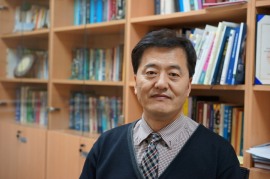튜닝산업연구소
|
[The Korea Herald 2016.03.11] "Power up from bottom up"
|
|---|
|
[The Korea Herald 2016.03.11] "Power up from bottom up" ? ▣ 지난 3월 11일 튜닝산업연구소 연구소장이자 아주자동차대학 교수로 재직중인 이동원 교수의 "한국의 튜닝산업 발전 및 한국자동차튜닝산업협회의 역할" 에 관한 코리아헤럴드의 ?인터뷰가 진행되었다. ? ▣ 기사 발췌 내용
Hundreds of college students study auto mechanical engineering, design and new auto technologies such as hybrid and self-driving cars in Korea every year. But only very few land jobs in tuning, which is one of the most lucrative auto fields in countries such as the U.S., Germany and Japan. This is because the Korean tuning market is extremely small for several reasons including tough regulations against tuning in the country’s automotive aftermarket, lack of industry promotions and opportunities, and negative perception toward tuning. Lee Tong-won, professor at Ajou Motor College in Boryeong, South Chungcheong Province, was appointed as the first head of an automobile tuning research center at the college in partnership with the Korea Auto Tuning Industry Association last year. He said his main priority as the research head would be to create an education system enabling students to study and give them the opportunity to take national exams to gain professional licenses to customize automobiles. KATIA provides advice on auto policies and regulations to the government.
“There are exams for students to take and receive licenses for auto management and maintenance, but not for tuning. Although they look similar with some skills overlapping, tuning and maintenance are totally different and require a different set of knowledge,” Lee said in an interview with The Korea Herald. “We seek to approach this problem facing the tuning industry in Korea from bottom-up by creating this education and exam system for students aligned with the Korean National Competency Standards within two years.” Currently, Korea’s tuning goes as far as allowing people to “dress up” the exterior structure of cars like changing a van into an ambulance or a truck into a special-purpose delivery truck with protective coatings and paintings. It does not allow people, for instance, to tune engine units such as cars’ engine control units to calibrate and improve automobiles’ performance as the regulations strictly forbid engine customization in the aftermarket. This is partly due to traditional automakers refusing to let the aftermarket doors open to nontraditional auto service providers. “Tuning means improving ‘performance’ -- powering up a vehicle, not only making cars look different and shiny through dress ups. Even setting up a navigation system is viewed as tuning, which is wrong,” Lee said. “The current system means you can change your hands and feet for improvement, but leave the brain alone. How can you improve without improving your mind?” Safety, without doubt, is a critical issue when it comes to tuning and customizing cars, Lee added, reiterating that this is why the country must adopt an education system enabling students to acquire skills and receive national licenses through qualification exams. “This will open the doors to next-generation auto engineers to start companies and create a new market whose potential has not yet been fully explored in the country,” Lee said.  ? Lee Tong-won, head of automobile tuning research center at Ajou Motor College. (Ajou Motor College) ? ?
?※ 본 게시글은 [The Korea Herald 2016.03.11, Park Hyong-ki ]"Power up from bottom up"? http://m.koreaherald.com/view.php?ud=20160311000869&ntn=0#jyk 에서 발췌한 내용입니다. ? ? ? |
